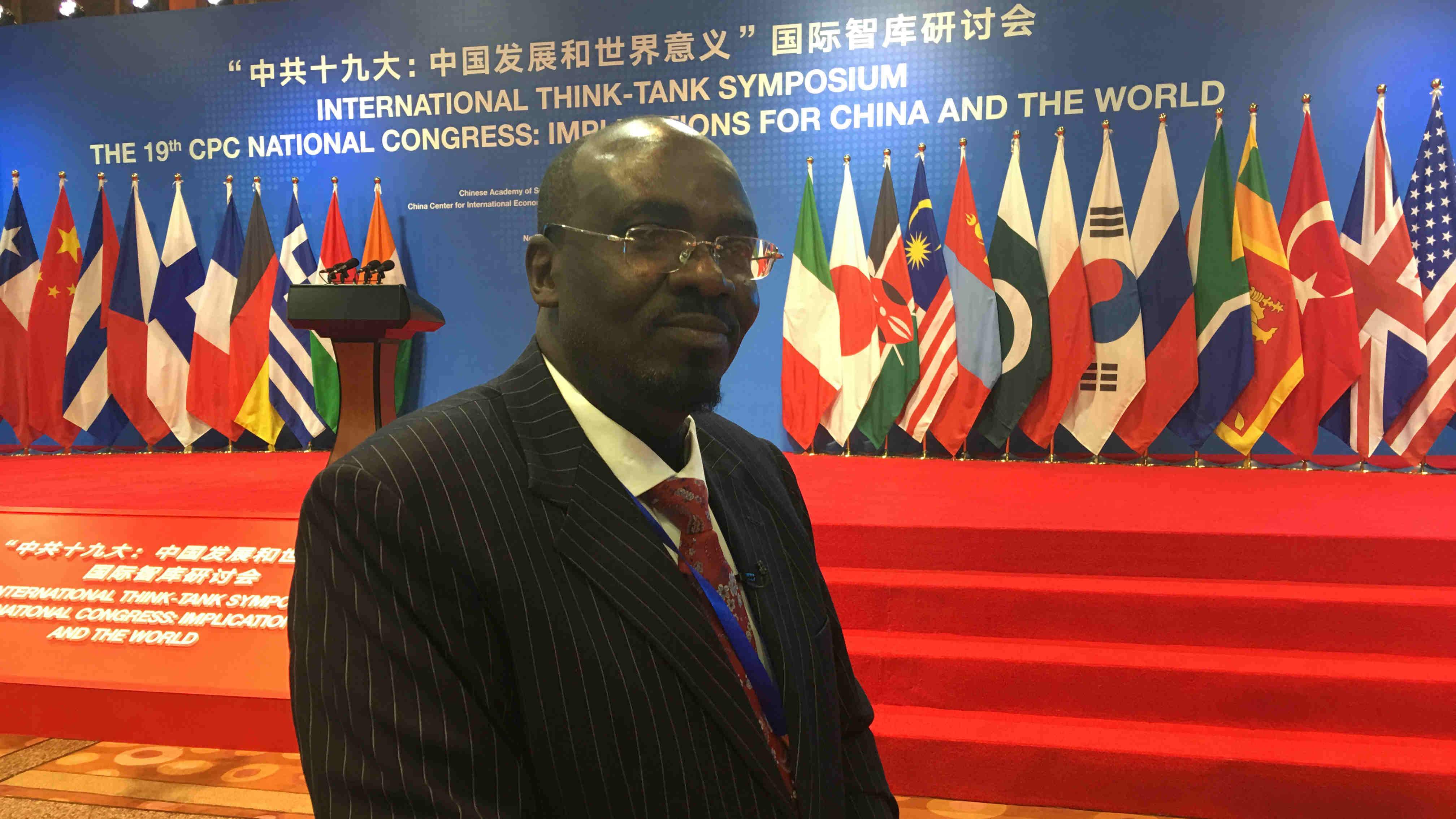
Politics
21:27, 16-Nov-2017
Experts: 19th CPC National Congress has global significance
By Su Yuting

It has been three weeks since the conclusion of the 19th National Congress of the Communist Party of China (CPC), and an international symposium has been held in Beijing to discuss the implications of the decisions that were made, both for China and the world.
Last month's National Congress attracted attention from around the world, largely because of China's increasing presence on the global stage.
General Secretary Xi Jinping made several references to "a new era" for China in his work report which emphasized China becoming more open, more welcoming of foreign investment and ready to play a greater role in global economic governance.
Senior officials and experts from other parts of the world converged in Beijing to discuss China's new development plans, and amendments to the Party's Constitution drew great attention.
Huang Kunming, a member of the Political Bureau of the 19th CPC Central Committee, said, "Xi Jinping Thought on Socialism with Chinese Characteristics for a New Era", which was enshrined in the Party's constitution, isn't only aimed at development at home, but all over the world.

Kenneth M. Quinn, president of the World Food Prize Foundation /CGTN Photo
Kenneth M. Quinn, president of the World Food Prize Foundation /CGTN Photo
He added that it's China's approach to resolving the world's most challenging problems.
"The resolution states the amendment has systematically addressed the major question of our times: What kind of socialism with Chinese characteristics in the new era requires us to uphold and develop and how we should uphold and develop it," Huang said.
A wide range of new ideas, thought and strategies put forward by the CPC Central Committee have been added to the Constitution, including giving play to the decisive role of market forces in resource allocation, advancing supply-side structural reform and enhancing the country's cultural soft power.

Peter Kagwanja, president and Chief Executive of the Institute of Diplomacy and International Studies from University of Nairobi. /CGTN Photo
Peter Kagwanja, president and Chief Executive of the Institute of Diplomacy and International Studies from University of Nairobi. /CGTN Photo
The CPC says the amendment looks to address the evolution of China's "principal contradiction", which has changed from "the ever-growing material and cultural needs of the people" to "the country's unbalanced and inadequate development and people's ever-growing need for a better life."
Experts said it has drawn a new blueprint for the country's development in the next five years, but also boosts win-win cooperation and has global significance.
Kenneth M. Quinn, president of the World Food Prize Foundation, said: "This is very positive outlining the future. China is clearly one of the global leaders of the 21st century, President Xi is outlining the objectives, and it will be very important to build upon this in terms of the relationships with the US, with Europe, with developing world. So I think it sets the stage for greater progress, for peaceful progress and peaceful cooperation and collaboration."
Peter Kagwanja, president and Chief Executive of the Institute of Diplomacy and International Studies from University of Nairobi, said: "For Africa, it's significant, because China is Africa's leading development partner. And the policies that being adopted by the Communist Party of China are going to have implications for the development of Africa. I must note that in the past 20 years, China's development and prosperity has been mirrored in Africa's growing development and prosperity, and it has been mirrored in reduction of poverty on the continent. Therefore, this meeting is extremely significant."

SITEMAP
Copyright © 2018 CGTN. Beijing ICP prepared NO.16065310-3
Copyright © 2018 CGTN. Beijing ICP prepared NO.16065310-3